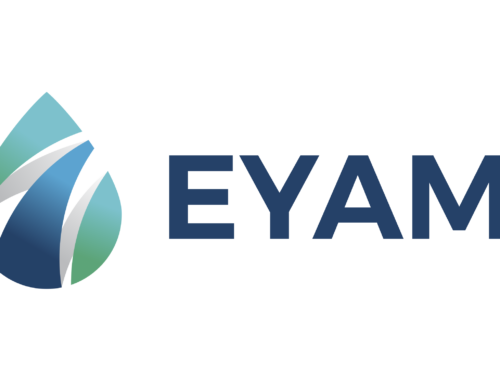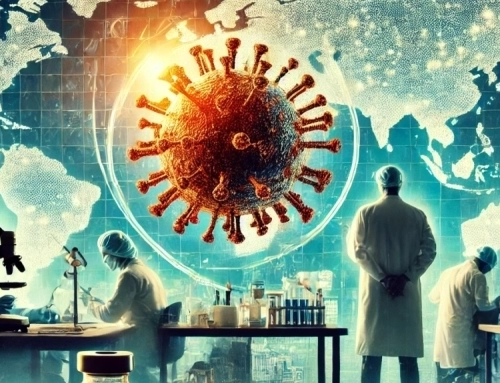Unveiling the Promise of Cancer Vaccines: A New Frontier in Medical Science
October 31, 2023
By Ryan M. Thomas
|
|
|
Unveiling the Promise of Cancer Vaccines: A New Frontier in Medical Science Many of you have likely heard about the promise of “cancer vaccines”, but how much do you actually know? Well, in this newsletter I’ll share with you some critical background on cancer vaccines and how Eyam is already leveraging our AI-driven Jennerator design platform to design them. Understanding Cancer Vaccines What Are Cancer Vaccines? Unlike traditional vaccines designed to prevent infectious diseases, cancer vaccines represent a revolutionary approach to treating cancer. Cancer vaccines are a groundbreaking class of immunotherapy designed to harness the power of the immune system to combat cancer. Unlike conventional vaccines that prevent infections by training the immune system to recognize and attack pathogens like viruses or bacteria, cancer vaccines work to stimulate the immune response against cancerous cells within the body. They represent a path forward that could radically change how we treat cancer, extend life expectancies and improve quality of life around the world. They have the ability to target specific cancers and even be personalized based on the genetics of the individual. How Do Cancer Vaccines Work? Cancer vaccines function by presenting specific cancer-related antigens to the immune system, prompting it to recognize and target cancer cells. These antigens can be derived from the patient’s tumor tissue, cancer-specific proteins, or genetically engineered antigens designed to mimic those found on cancer cells. By introducing these antigens, cancer vaccines aim to “teach” the immune system to identify and destroy cancer cells effectively. The Difference Between Cancer and Infectious Disease Vaccines Cancer vs. Infectious Disease Vaccines While both cancer and infectious disease vaccines seek to bolster the immune response, they differ in fundamental ways: The Target: Infectious disease vaccines primarily target external pathogens, such as viruses or bacteria, while cancer vaccines target the body’s internal cells that have turned cancerous. Preventative vs. Therapeutic: Traditional vaccines are typically preventive (although the COVID-19 vaccines and others aim to prevent severe symptoms as opposed to preventing infection); they aim to protect individuals from infection. In contrast, cancer vaccines are therapeutic, administered after cancer diagnosis to help the immune system combat existing cancer cells. Diversity of Targets: Infectious disease vaccines often target a single pathogen or strain. In contrast, cancer vaccines may need to address a wide range of cancer cell variations, as each patient’s cancer is unique. Specificity: Cancer vaccines require a higher degree of specificity, tailoring the treatment to the patient’s specific cancer type and genetic profile. Challenges: Cancer vaccines face unique challenges, such as immunosuppression within the tumor microenvironment and the need to distinguish between normal and cancerous cells. Types of Cancer Vaccines Just as there are different types of vaccines for infectious diseases (think mRNA versus attenuated) there are also different ways of attacking cancer.
These vaccines use cancer-specific peptides (short protein fragments) to stimulate the immune system. They are personalized to target antigens found on the patient’s tumor cells.
Whole-cell cancer vaccines use either whole cancer cells or parts of cancer cells to train the immune system. Dendritic cells, a type of immune cell, are often used to present these cancer cell components to the immune system.
Genetic vaccines, including DNA and RNA vaccines, introduce genetic material encoding cancer antigens into the body. This prompts the immune system to produce antigens itself, training it to recognize and attack cancer cells.
These vaccines employ modified viruses to deliver cancer antigens into the body. The virus serves as a vehicle to transport cancer-related genetic material to immune cells. The Potential of Cancer Vaccines Like in most industries, biotech goes through cycles of excitement regarding new technologies. Before mRNA, there was hope in gene therapy – a promising approach that attempts to alter genetic code to cure a disease – and today we see lots of promise in next generation delivery systems (like Gemini) and also the future of cancer vaccines. So, where is the potential in cancer vaccines? Personalized Medicine Today, cancer treatments are general and broad. Cancer vaccines offer the promise of personalized medicine, tailoring treatment to an individual’s unique cancer profile. By identifying specific antigens on a patient’s tumor cells, vaccines can be designed to precisely target and combat the cancer. Reducing Side Effects With current cancer treatments, several side effects appear that cause the death of both healthy and cancerous cells. Compared to traditional cancer treatments like chemotherapy and radiation therapy, cancer vaccines may offer fewer side effects because they selectively target cancer cells, sparing healthy tissues. Combination Therapies Cancer vaccines can be used in combination with other cancer treatments, such as immunotherapies, chemotherapy, and radiation therapy, to enhance their effectiveness. This synergistic approach holds significant potential for improving patient outcomes. Cancer Vaccines and Eyam’s Technologies As an emerging leader in vaccine and nanomedicine, Eyam is committed to pushing the boundaries of science, including cancer vaccine research and development. We believe that cancer vaccines have the potential to revolutionize cancer treatment, offering new hope to patients worldwide for better outcomes and a higher quality of life during treatment. Cancer vaccines represent a groundbreaking frontier in the fight against cancer. While challenges remain, the promise of personalized, effective, and side-effect-reduced cancer treatment is within reach. Eyam is well positioned to leverage our Jennerator design platform along with our Gemini delivery system to only construct the new frontier of cancer vaccines, but also to effectively deliver them into targeted areas of the body. Stay tuned for more updates from Eyam as we continue to push the frontiers of biotechnology and the development of cancer vaccines! |
Unveiling the Promise of Cancer Vaccines: A New Frontier in Medical Science
October 31, 2023
By Ryan M. Thomas
|
|
|
Unveiling the Promise of Cancer Vaccines: A New Frontier in Medical Science Many of you have likely heard about the promise of “cancer vaccines”, but how much do you actually know? Well, in this newsletter I’ll share with you some critical background on cancer vaccines and how Eyam is already leveraging our AI-driven Jennerator design platform to design them. Understanding Cancer Vaccines What Are Cancer Vaccines? Unlike traditional vaccines designed to prevent infectious diseases, cancer vaccines represent a revolutionary approach to treating cancer. Cancer vaccines are a groundbreaking class of immunotherapy designed to harness the power of the immune system to combat cancer. Unlike conventional vaccines that prevent infections by training the immune system to recognize and attack pathogens like viruses or bacteria, cancer vaccines work to stimulate the immune response against cancerous cells within the body. They represent a path forward that could radically change how we treat cancer, extend life expectancies and improve quality of life around the world. They have the ability to target specific cancers and even be personalized based on the genetics of the individual. How Do Cancer Vaccines Work? Cancer vaccines function by presenting specific cancer-related antigens to the immune system, prompting it to recognize and target cancer cells. These antigens can be derived from the patient’s tumor tissue, cancer-specific proteins, or genetically engineered antigens designed to mimic those found on cancer cells. By introducing these antigens, cancer vaccines aim to “teach” the immune system to identify and destroy cancer cells effectively. The Difference Between Cancer and Infectious Disease Vaccines Cancer vs. Infectious Disease Vaccines While both cancer and infectious disease vaccines seek to bolster the immune response, they differ in fundamental ways: The Target: Infectious disease vaccines primarily target external pathogens, such as viruses or bacteria, while cancer vaccines target the body’s internal cells that have turned cancerous. Preventative vs. Therapeutic: Traditional vaccines are typically preventive (although the COVID-19 vaccines and others aim to prevent severe symptoms as opposed to preventing infection); they aim to protect individuals from infection. In contrast, cancer vaccines are therapeutic, administered after cancer diagnosis to help the immune system combat existing cancer cells. Diversity of Targets: Infectious disease vaccines often target a single pathogen or strain. In contrast, cancer vaccines may need to address a wide range of cancer cell variations, as each patient’s cancer is unique. Specificity: Cancer vaccines require a higher degree of specificity, tailoring the treatment to the patient’s specific cancer type and genetic profile. Challenges: Cancer vaccines face unique challenges, such as immunosuppression within the tumor microenvironment and the need to distinguish between normal and cancerous cells. Types of Cancer Vaccines Just as there are different types of vaccines for infectious diseases (think mRNA versus attenuated) there are also different ways of attacking cancer.
These vaccines use cancer-specific peptides (short protein fragments) to stimulate the immune system. They are personalized to target antigens found on the patient’s tumor cells.
Whole-cell cancer vaccines use either whole cancer cells or parts of cancer cells to train the immune system. Dendritic cells, a type of immune cell, are often used to present these cancer cell components to the immune system.
Genetic vaccines, including DNA and RNA vaccines, introduce genetic material encoding cancer antigens into the body. This prompts the immune system to produce antigens itself, training it to recognize and attack cancer cells.
These vaccines employ modified viruses to deliver cancer antigens into the body. The virus serves as a vehicle to transport cancer-related genetic material to immune cells. The Potential of Cancer Vaccines Like in most industries, biotech goes through cycles of excitement regarding new technologies. Before mRNA, there was hope in gene therapy – a promising approach that attempts to alter genetic code to cure a disease – and today we see lots of promise in next generation delivery systems (like Gemini) and also the future of cancer vaccines. So, where is the potential in cancer vaccines? Personalized Medicine Today, cancer treatments are general and broad. Cancer vaccines offer the promise of personalized medicine, tailoring treatment to an individual’s unique cancer profile. By identifying specific antigens on a patient’s tumor cells, vaccines can be designed to precisely target and combat the cancer. Reducing Side Effects With current cancer treatments, several side effects appear that cause the death of both healthy and cancerous cells. Compared to traditional cancer treatments like chemotherapy and radiation therapy, cancer vaccines may offer fewer side effects because they selectively target cancer cells, sparing healthy tissues. Combination Therapies Cancer vaccines can be used in combination with other cancer treatments, such as immunotherapies, chemotherapy, and radiation therapy, to enhance their effectiveness. This synergistic approach holds significant potential for improving patient outcomes. Cancer Vaccines and Eyam’s Technologies As an emerging leader in vaccine and nanomedicine, Eyam is committed to pushing the boundaries of science, including cancer vaccine research and development. We believe that cancer vaccines have the potential to revolutionize cancer treatment, offering new hope to patients worldwide for better outcomes and a higher quality of life during treatment. Cancer vaccines represent a groundbreaking frontier in the fight against cancer. While challenges remain, the promise of personalized, effective, and side-effect-reduced cancer treatment is within reach. Eyam is well positioned to leverage our Jennerator design platform along with our Gemini delivery system to only construct the new frontier of cancer vaccines, but also to effectively deliver them into targeted areas of the body. Stay tuned for more updates from Eyam as we continue to push the frontiers of biotechnology and the development of cancer vaccines! |






